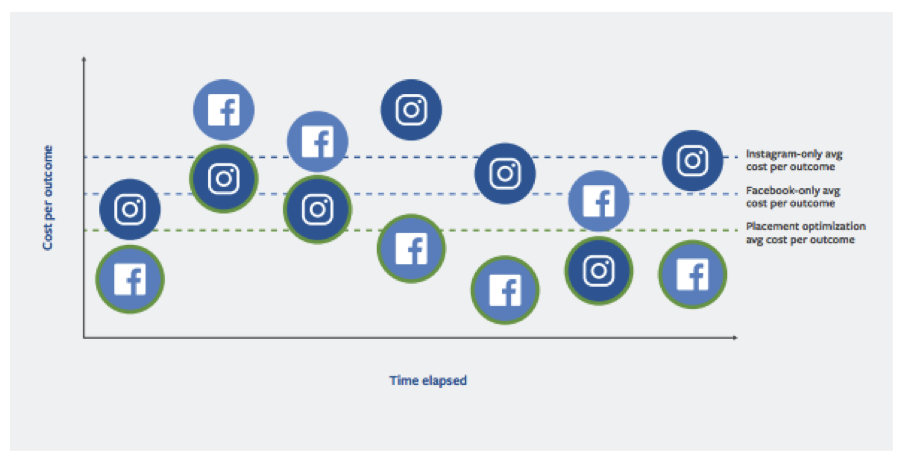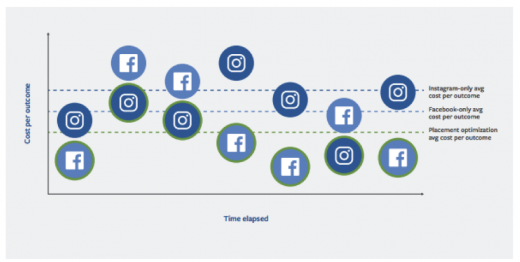Facebook Flexible Placements: The Why and How
— July 18, 2017
You may have noticed the trend towards Facebook flexible placements (i.e., placement optimization). Are these worth incorporating into your account?
In this article, we cover the main advantages of placement optimization and why you should include it in your marketing strategy. The benefits sound a lot like common business goals: timesaving, efficiency, and expanded reach.
Timesaving
Saving Time Through Predictable Performance
When you run your campaigns only on what you consider to be the best-performing placement or split individual placements, you’ll most likely see fluctuating performance. And, it may be challenging to achieve low CPA or delivery in a specific placement. Manual adjustments become an ongoing struggle as you try to get the most out of your campaigns.
Optimizing for more placements, on the other hand, will save you some time when you create and refine your campaigns. This produces better delivery, enhanced performance, and expanded reach.
Saving Time Through Robust Tools
There are duplication and mass-editing tools that allow you to clone ad sets or campaigns, automatically make changes to placements, and run Facebook and Instagram campaigns independently. With these tools, there’s no need to create everything from scratch or reinvent the wheel.
However, what if you’re running full-funnel activities, from branding to retention? What if you’re also advertising in multiple markets, plus variations for those audiences?
Here, placement optimization can help save you tons of time. Instead of targeting and setting up every placement, you can let Facebook do it for you, clearing more time for strategic planning, optimization, and further testing.
Saving Time Through Insightful Reporting
As for reporting, Facebook provides the option of seeing the placement breakdown, allowing you to determine which placement drives the best performance. But, don’t rush to divert all of your budget to the best-performing placement by separating placements again, as Facebook will optimize for the best performer, anyway. Which leads us to efficiency.
Efficiency
When you’re developing your strategy and creating your Facebook ad campaigns, one aim is to provide as much information as possible so that Facebook algorithms know your goal and optimize for it. This includes indicators like objective, promoted object, and bidding type.
Why should you let the algorithms deliver ads in placements that bring low CPAs? Because they’re flexible, serving your ads on Facebook, Instagram, or Facebook Audience Network (FAN) when there’s the greatest likelihood of the cheapest CPA and highest volume.

How placement optimization works (Source: Facebook)
Expanded Reach
Audience size plays a key role in achieving the cheapest CPA, meaning that if there’s a possibility to increase reach, it’s always a good idea to do it.
With placement optimization, you have the opportunity to reach more users with the same budget, which can solve cost effectiveness and single-placement delivery issues.
How does placement optimization work? Easy—it takes advantage of Facebook’s algorithms that dynamically search and serve your ad to the placement that’s most cost effective at any given time, whether it’s on Facebook, Instagram, or FAN.
Conclusion
More time, better use of resources, more brand awareness and revenue. Placement optimization is one of the best strategies for putting your marketing dollars to effective use.
Digital & Social Articles on Business 2 Community
(42)












